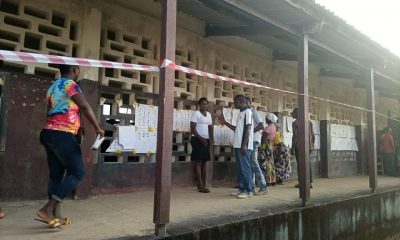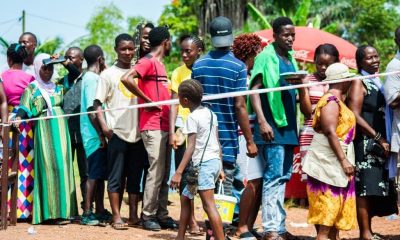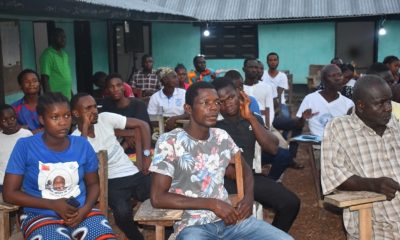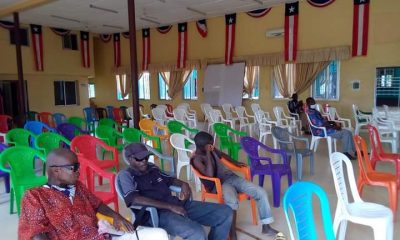voters
People Living with Disabilities Denied Special Access on Election Day
More in voters
-


Grand Kru County Three Polling Places Re-Run Takes Place Today
Barclayville – National Election Commission office in Grand Kru County has encouraged voters to...
-


Voters are Pleased with Peaceful, Free, and Fair Elections
Monrovia – Josephine Miller, a registered voter at the Duja High School, in Gardnersville,...
-


Margibi County Voters Share Referendum Feedback
Kakata, Margibi County – Voters purposefully boycotted the national referendum because they did not...
-


All Bomi County Senate Candidates Abandon Voters
Liberia has not even passed the election day, and candidates for Senate elections have...


































































































































































































































































































































































































































































































































































































